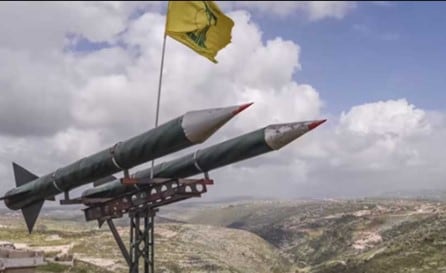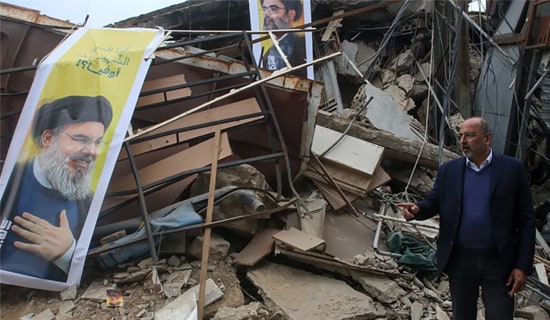Against the backdrop of the escalation in fighting between Israel and Hizbullah in Lebanon in late September 2024, and the concern about it leading to a regional war, articles appeared in the Saudi press blaming Hizbullah for the difficult situation in which Lebanon finds itself.
The main claim of most of the writers is that in recent years Hizbullah has assumed control of the decision-making process in Lebanon, immobilized the country’s institutions, and transformed itself into its patron. They wrote that Hizbullah is a coercive creation of Iran’s that has entered a confrontation with Israel motivated solely by Iranian interests, at the expense of the interests of Lebanon, while seriously harming its citizens.
The authors of the articles warned that Lebanon is likely to pay a very heavy price in the current confrontation, and that this will only be remedied when Hizbullah abandons its ideology, its loyalty to Iran, and its arms and becomes a national Lebanese political party, like all other the others.

The following are translated excerpts from the articles referred to above:
Saudi Newspaper Editor-In-Chief: Hizbullah, Which Implements An Iranian Agenda, Is Destroying Lebanon
Khaled Al-Malik, who is editor-in-chief of the Saudi Al-Jazirah daily, wrote: "... Lebanon is now in one of the worst periods since it gained its independence. This is because from the presidency of [Michel] Aoun [2016-2022] to this day, it has remained isolated, in economic collapse, and in struggles among its parties, with a government that controls nothing and a parliament that is paralyzed. This situation encouraged Hizbullah to become the decisionmaker regarding war and peace, in the absence of an army, institutions or parties to oppose it or to prevent it from carrying out its adventures – the destructive results of which we are now witnessing.
"Yes, Israel is occupying parts of Lebanon's lands, and is constantly skirmishing with Hizbullah on Lebanon's southern border. But with dialogue and diplomacy, it would have been possible to arrive at what wars did not achieve – instead, [we have] Nasrallah's boasting in his speeches and his mobilization of the men of his organization for poorly thought-out wars against Israel…
"But Hizbullah cannot be absolved of responsibility [for what is happening], since it is the one implementing Iran's agenda at the expense of Lebanon's interests, with no achievements [for Lebanon]. This is even if the organization's secretary general [Nasrallah] has become accustomed to speaking about his organization's imaginary victories against Israel, just as he has become accustomed to speaking, without [any] proof, of his victories in the 2006 war.
"The international community must condemn Israel for its crimes in Syria, Lebanon, and Palestine, and must demand that it respect the rules of conflict and incentivize it to agree to the establishment of a Palestinian state with clear borders, with Jerusalem as its capital, in order to put an end to these unjustified wars.
"Iran must stop helping its proxy parties in Iraq, Syria, Lebanon, and Yemen, because the entanglement of these countries [in disputes] causes them only loss of life and property, chaos, and insecurity to their countries...
"Following these defeats and disasters, Hizbullah must become [solely] a political party, in order to save Lebanon and the Lebanese from an unknown fate."[1]
Saudi Columnist: Lebanon Cannot Exist As A Country Under The Hizbullah Ideology
Ahmad Al-Jumaiahe, columnist for the Saudi Okaz daily, wrote: "...What has been happening in Lebanon, from the 1980s until today, is essentially the triumph of a party or organization and not of the country of Lebanon and its official institutions. As a result, this beautiful Arab country, including its soil and its people, has for decades remained under the aegis of a single armed organization, established by Iran as its agent, under the false slogans of the resistance and death to Israel, and under the influence of the [Shi'ite] religious extremism that has divided the Lebanese from within...
"The third Lebanon war has begun. The reason for all these wars was not the [Lebanese] government, but parties and militias that have stolen the right of the state and the people to live in dignity... The [Lebanese] government is weaker than these parties, and especially [weaker than] Hizbullah, which has influenced and interfered [in affairs of state] – and the situation has reached the point of disrupting the government itself. This is a very grave indication that the country remains under the aegis of an organization [i.e. Hizbullah] and in a state of confrontation with Israel for the sake of Iranian interests, not Lebanese interests, or even Arab interests. The result of this is dead and wounded, destroyed infrastructure, the collapse of economy, and delayed development.
"This time, Lebanon will pay a very heavy price, because Israel’s current strategy is not only concerned with South Lebanon or severing the connection between the Hizbullah axis and Gaza, or freezing the operations of Hizbullah itself, but the goal is to completely destroy Hizbullah…
"There will not be a country in Lebanon as long as Hizbullah doesn’t abandon its ideology, even before [its abandons] its weapons, and like every political party integrates itself into political activity, so that the country and its institutions will remain the basis [for everything]. Only then will the Arab and Islamic solidarity include the country, and not be with the political parties, and some of the members of the Lebanese people will wise up – and many of the people in the region along with them – [and understand] that this belonging should be to the homeland, and the loyalty to its leadership, and not to Hizbullah, that has traded in slogans for the past 40 years and whose bogus resistance has not liberated [even] a speck of Palestine!”[2]
Saudi Journalist: Hizbullah Refuses Every Political Agreement To Reduce The Tension In The Conflict With Israel
In his column in the Saudi Okaz daily, Saudi journalist Hamoud Abu Talib wrote, “Even if Hizbullah had joined the war in Gaza in only a symbolic manner that had no influence, that would have been enough to increase the tension between it and Israel, in the context of its refusal to implement any political agreement that would reduce this tension in South Lebanon and northern Israel.
"Hizbullah has ensnared itself with the boastful speeches by Hassan Nasrallah, the rockets he launches indiscriminately from time to time… and [with] the decision of the organization to make its presence felt in this war from the start. At this point it was clear that Israel would not miss the opportunity granted it by Hizbullah, and give this [organization] serious attention at the time of its choosing. And in fact, that is what happened when two days ago Israel began to carry out powerful, continuous, and wide-ranging attacks that extended beyond the usual areas of confrontation in South Lebanon…
"Who will feel any fondness for, or stand by Hizbullah, which on an international level is deemed a terrorist organization; maybe only France, that attempts to relate to it as a political element, in addition [to its being] a military [organization], with which it is possible to reach understandings or to engage in dialogue. However, reality has proved the failure of this approach, for France has not managed to obtain any positive movement from Hizbullah [in its efforts] to extricate Lebanon from the difficult situation in which the organization has entangled it. In light of this information and more, one cannot discount the possibility that Israel will continue to escalate its attacks against Lebanon. History is likely to repeat itself in a worse manner than what occurred in 2006…"[3]





